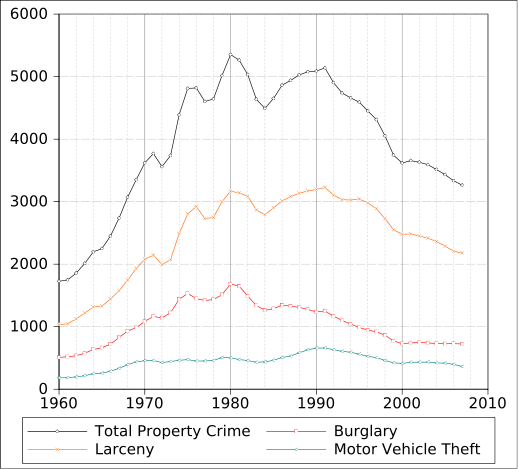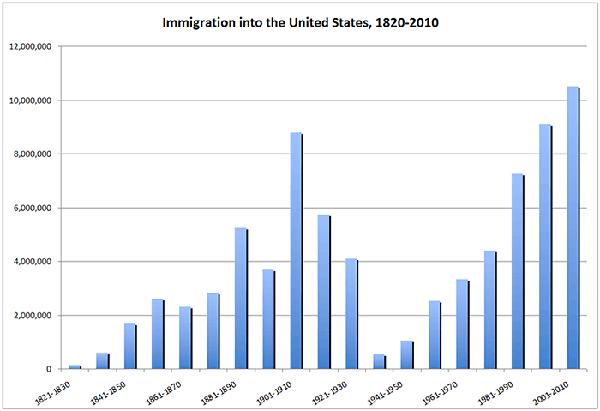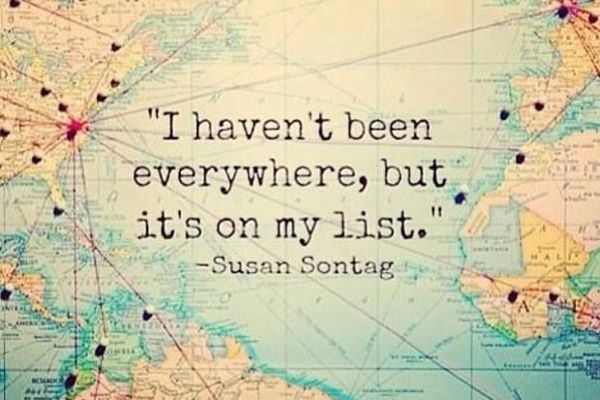
|
THE LIBERTARIAN ENTERPRISE Number 847, November 15, 2015 I don't recall anyone ever saying "Fewer guns, more crime.", but maybe it's time we did. We have just been treated to an example of that insane principle at work.
Government Is an Assault on Private Property
Attribute to L. Neil Smith's The Libertarian Enterprise "Travel is fatal to prejudice, bigotry, and narrow-mindedness." —Mark Twain In a recent essay, Lew Rockwell asserts that open borders are an assault on private property. Evidently he feels that people travelling across imaginary boundaries established by nation-states are undesirable. He seems to think that his views are anti-state, anti-war, and pro-market, but he doesn't want to have people moving about the world without limitations placed upon them. It's curious, to me, that he seems prepared to assent to government (the state) when it does things that he agrees with, such as preventing people from travelling. But he doesn't want the state to interfere with private property. I'm quite happy with a state not attacking trade and commerce, of course. But it seems to me that people who aren't free to travel without government permissions aren't going to be able to come to my store and buy things. Now, of course, Lew will complain that he didn't mean to interfere with tourists who have money and want to spend it in his country doing so. He will insist that he's only talking about people who feel that by gaining entry to a country they ought to be able to engage in trade and commerce with other persons, buy or rent property, offer their labour for sale, engage living accommodations, or do any other thing as they see fit. Lew says, in part, "What we believe in are private property rights." But is that the only thing we believe in? I believe that no one has the right to initiate force against anyone else. I believe in peace, justice, freedom, and privacy. I believe that no one has more rights than anyone else, that there is no actual elite, even though I can see that there are people who behave as though they are members of an elite who ought to be privileged by complaining about the government not being sufficiently violent toward those who wish to, say, move over national borders without being governed. Which means that if I'm a private property owner with enough land to own and operate an air strip, and I don't mind if people fly into my property to visit, spend money at my stores, see the tourist attractions ("Look, honey, there's a free range anarchist in his natural habitat!"), and venture close to the edges of my property, I don't see how it is any of Lew's concern. If those people then choose to set up tents, with my permission, and occupy some piece of my property, that's also none of Lew's business. But, of course, because Lew has a government to which he pays taxes, and from which he demands closed borders, I cannot operate my private air strip with impunity. Lew's national government will interdict the people travelling to my property, Lew knows it, and he's completely fine with it. In fact, he wants the government to set up check points, border crossings, and keep undesirables out. Mind you, he has some interesting ideas on who owns what property. For example, the commons maintained by people for the purpose of travel and trade, such as roads, bridges, airports, shopping malls, those not only have to be privately owned, Lew believes, but also have to be owned by people who will keep out the riff-raff. You know, those arch criminal malcontents who wish to work for less than minimum wage, don't file proper tax forms with the national government where Lew lives, and who send money back to their families in their places of origin, for shame. Here's Lew on who owns land: "Property in the possession of a thief is not unowned, even if at the moment it does not happen to be held by the rightful owner." Now, that seems very exciting to my friends of Native American birth. Rather a great deal of land currently in the possession of the descendants of European settlers in the "new world" was originally owned by the aboriginal or "first nations" peoples. Isn't it curious that no Native American has ever been elected president, and a scant few to the estimable halls of Congress? Mind you, these are the people who owned the land, before it was stolen and subsequently "sold" to people who now claim to own it. Two currently seated members of Congress are Native Americans. Ten, count 'em, ten total persons representing those people who properly owned the land before people with names like "Rockwell" came and stole it from them, have ever served in Congress. So, yes, Lew, please tell us about the proper ownership of the land in the United States. I guess he might be in favour of people keeping their own lands as they see fit, since he says, "If four million Americans showed up in Singapore, that country's culture and society would be changed forever." But, of course, millions of Europeans showed up in North America, and he doesn't seem to mind that native peoples were massacred, sent to concentration camps called "reservations," discriminated against, and had their cultures utterly destroyed. Maybe it doesn't make as good an example, because Singapore, after all, dramatically restricts free speech, political opposition, and has a long history of authoritarian government. One wouldn't want to subject such people to an influx of outsiders, except that people from many different countries seem to be welcome in Singapore, whether Lew approves or not. I would like Lew to please explain how people with names like Rockwell benefited from borders of Native American lands being forcibly opened by the national government of his country and then, curiously, seem to want those borders forcibly closed. That seems extraordinarily hypocritical. In his defence, Lew seems to say that waves of immigrants beginning in 1850 were responsible for crime. He says, specifically, "The three great crime waves in US history—which began in 1850, 1900, and 1960 —coincided with periods of mass immigration." Now, coincidence is not causation. There were a number of economic factors in those same periods of time. In 1850, the aggressive, violent, imperial war by the United States on Mexico had recently ended. The compromise of 1850 was passed to avert, for a time, a civil war. American Express was founded. The census bureau determined that 11.2% of the population classed as "Negro" were of mixed descent. A great famine persisted in Ireland thanks to the government of Britain treating the Irish as slaves. One could go on in this vein for some time. Can we be sure that the crime wave which began in 1960 was entirely due to immigration? Lew doesn't offer any facts to support this idea, only mentioning a coincidence. There was certainly a great amount of forced immigration to the United States on slave ships flying American flags prior to 1808 (and, illegally, up through 1865) which resulted in considerable "crime" in the 1960s, including civil unrest over Jim Crow laws, including rioting and violence. Perhaps the fact that the descendants of black slaves forcibly brought to the United States were unhappy with discrimination in public accommodations is exactly the kind of immigrant-related crime that Lew seeks to have the government crack down upon? I don't know. Maybe Lew thinks that people like my grandparents who sought to integrate the lunch counters in downtown St. Louis were criminals and should have been arrested, or even deported. Were immigrants to the United States entirely evil? Lew seems to think so, but quite a few immigrants have been responsible for scientific discoveries, technological inventions, masterpieces in the fine arts, and have been diligent shopkeepers. Perhaps Lew thinks that he can solve the difficulties of crime through governmental oppression. By keeping people who wish to move across imaginary lines drawn on maps and maintained by the dictates of authoritarian governments, we can probably expect to reduce legal migration. But the problem of crime is distributed and decentralised. You can find that in 2012, violent crime, including violent property crime (armed robbery, say) accounted for about 387 incidents per 100,000 population, or about 4 tenths of a percent of the people. Non-violent property crimes involved about 2,905 out of 100,000 persons, or 2.9%. So about 3.3% of people are affected by violent or non-violent crimes. How should people address such crimes? By keeping and bearing arms and phones, of course. By being aware of their surroundings, by having tools to reduce crime, people have brought about dramatic reductions in crimes. Here's an interesting chart on the subject, from wikipedia:  I'm actually curious, looking at this chart, whether the dramatic economic difficulties of the oil price shocks of 1973 and 1979 brought about by imperialistic American foreign policies combined with the increasing idiocy of gun control in the 1960 to 1990 time period might have more to do with the increase in property crimes we see above (that drops rapidly from 1992) than the "wave of immigration" which actually peaked considerably after crime rates began their dramatic decrease. Please have a look at this chart from the environmental impact statement on US immigration by way of comparison:  In 2009, a study by the Cato Institute, a free market think tank, found that legalization of low-skilled illegal resident workers in the US would result in a net increase in US GDP of $180 billion over ten years. Of course, some of that gain would come from having the national government spend less money being authoritarian about who gets to cross imaginary lines. Finally, for someone who says he is anti-war, Lew's parting shot about mass immigration to Europe seems to ignore the fact that people in Libya, Egypt, Syria, and Iraq, among other places, were quite content to stay where they were until the national government of Lew's country took steps to overthrow various governments, re-impose military rule in Egypt after the people overthrew a dictatorship, and bombed the living daylights out of large numbers of people. Maybe, just maybe, Lew should focus on ending the national government of the United States and ending its war policies if what he really wants is to reduce immigration. The USA and NATO creating millions of refugees in the Middle East and North Africa through its aggressive war policies doesn't seem to enter into the picture in statements like, "It is impossible to believe that the U.S. or Europe will be a freer place after several more decades of uninterrupted mass immigration." But, of course, people who are being bombed by the United States should not dare to imagine that they would be happier somewhere else. And if they were free to move about the world, how could the bombs land on them? Freedom is beautiful. People are wonderful. Travel is fun. Claiming that authoritarian control over where, when, and how people choose to go about their business is the "libertarian" position is, frankly, asinine.
Just click the red box (it's a button!) to pay the author
This site may receive compensation if a product is purchased
|

